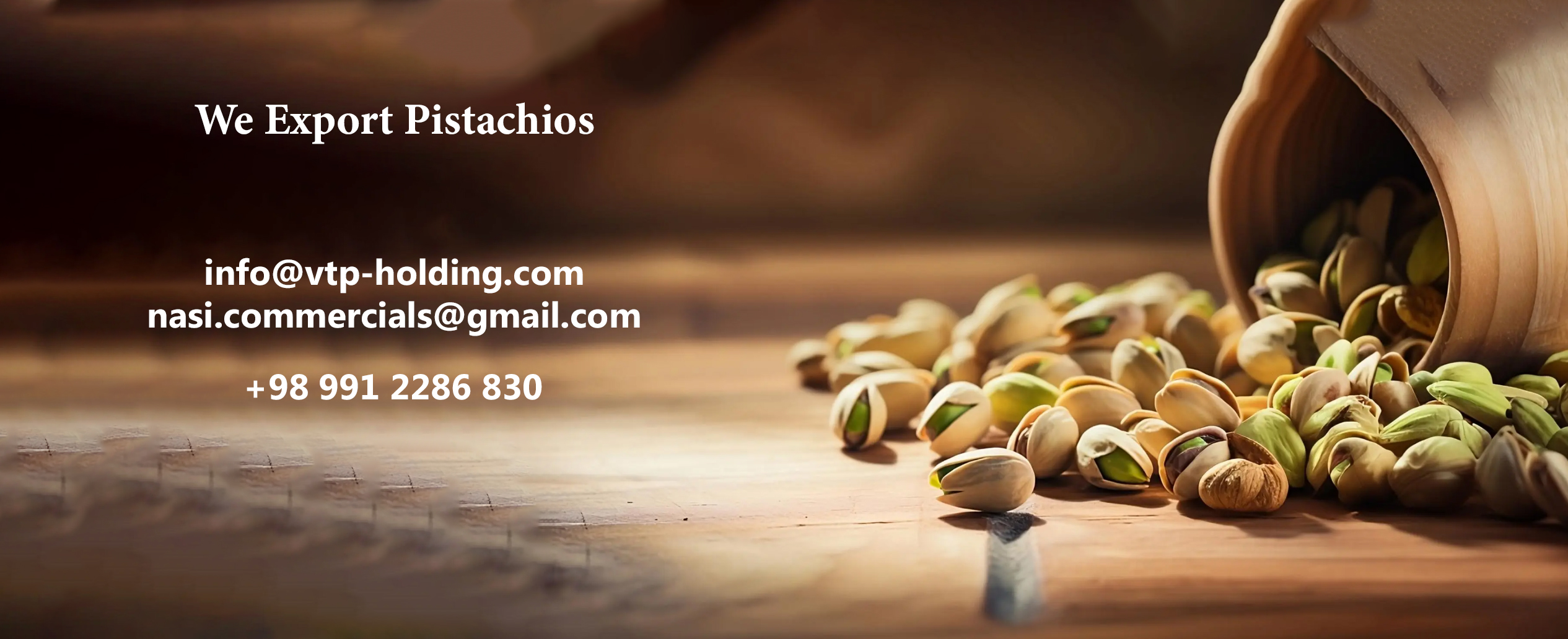Pistachios
Although the pistachios are considered nuts, they are a kind of plant bean in Phytology science. Pistachios are small and bear useful nutrients. Every 100g of these beans has 10g of fibers, 21g of proteins, and significant amounts of copper. Moreover, remarkable dosages of vitamin B6, Thiamine (vitamin B1), Phosphorous, Ferrous, Potassium, and other types of vitamins have been observed in pistachios making them worthy for heart health along with having notable amounts of Zinc, Magnesium, healthy oils, and anti-oxidants.
This nut has somehow high calories but causes no overweight in people, as eating pistachios reduces hunger during the day. It has also been approved that eating pistachios regularly can reduce harmful cholesterol, high blood sugar levels, and vasodilation.
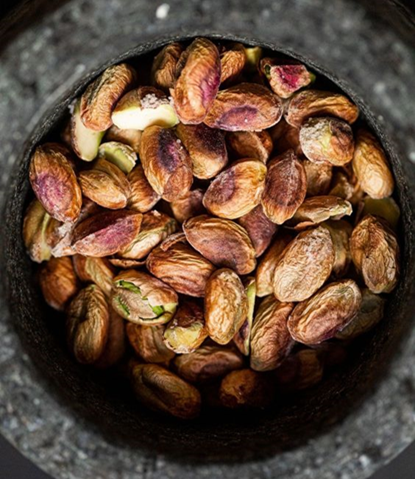
Why Iranian Pistachios?
It can be declared that pistachios have brilliant dignity as an important and strategic agricultural crop. Having benign taste and excellent properties make them a compatible crop in the world market; so then, the betterment of agricultural processes, climate change acquaintance, and abiding processes of pistachios production can present a key role in the enhancement of production, quality, and competitiveness.
Thanks to the appropriate climate, Iran is one of the best countries to cultivate pistachios and the crop obtained in Iran has outstanding quality and unforgettable taste with a global reputation.
Some of the main factors in introducing such a taste are the quality of the soil that has suitable components of minerals, and the unique mild climate in Iran which makes this country reasonable for cultivating pistachios. Additionally, warm summers, cold winters, and the skills of farmers in Iran suggest the best conditions for cultivating pistachios. De facto, common though the novel cultivating is traditional methods with farmers' experience cause the Iranian pistachios to be of good quality.
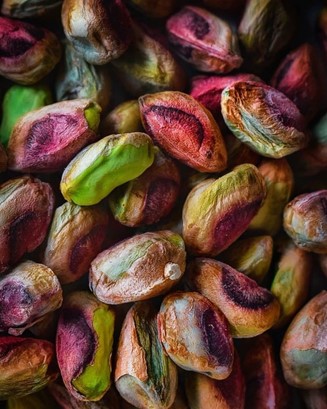
Pistachios are Hematopoietic Nuts
Pistachios are fully useful nutritious nuts bearing Ferrous, Folate, and vitamin B6 has hematopoietic properties. Among all, the presence of Fe is applicable in producing hemoglobin and carrying Oxygen in blood. In addition, fibers in pistachios can help the amelioration of digestive system function resulting in an enhancement in the nutrition absorbance making blood production better. It can be said that folate and vitamin B6 are the rep of producing blood cells which justifies the presence of pistachios in a desirable diet.
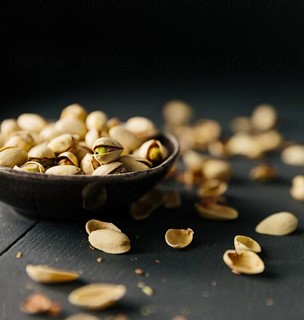
Raw Pistachios and Blood Pressure Adjustment
Research has shown that using varietal nuts can reduce blood pressure and keep the body healthier. However, the adjustment of blood pressure using raw pistachios presents better results in such aims. The salty pistachios can increase blood pressure and be problematic for patients suffering from high blood pressure. In contrast, using raw pistachios is an appealing trick for reducing blood pressure.
Pistachios possess anti-oxidants including Carotenoid pigments like Lutein and Zeaxanthin, polyphenols, vitamin C, and vitamin E can amend the flexibility of blood vessels. Besides, pistachios have a salient amount of Arginine - that along with Calcium, Potassium, and Magnesium - can precisely normalize the blood pressure. Such traits have made it useful even for pregnant women. This delicious nut has also some beneficial unsaturated oils like the ones that have been observed in olive oils.
Owing to the results reported, pistachios have been the only nut that significantly reduced diastolic and systolic blood pressure. These researches exhibited that daily using 30-60 g of pistachios can successfully reduce blood pressure by about one-third in mmHg. Scientists have repeated their studies on a 28-member group to reach better results and asked them to eat raw pistachio. The data confirmed that their systolic blood pressure has been reduced by around 2.4-4.4 mmHg on average.
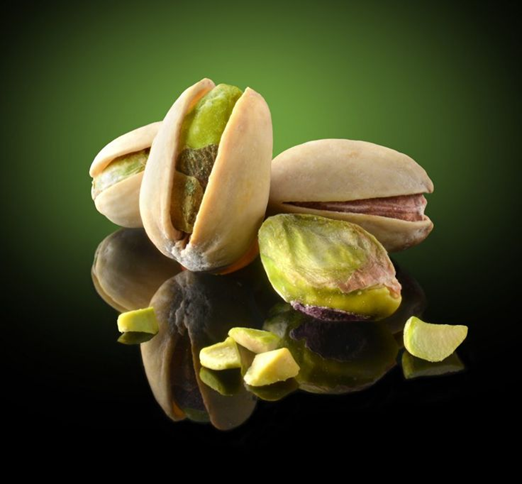
Pistachios and Kids
Children's health is a big deal! As a nutritious and healthy nut, pistachios are effective in children’s growth because they can provide nutrients that are vital for children's physical growth. As abovementioned, pistachios contain protein, fibers, vitamins E and B6, and other useful nutrients like magnesium and ferrous that are exigent, especially for a child’s brain growth. Pistachios are an important source of un- and semi-saturated oils such as Omega-3 that improve the functioning of a child’s brain and nervous system. However, it must be considered that pistachios are a common allergic nut and it would be better to control the consumption amounts according to children’s age and needs.
